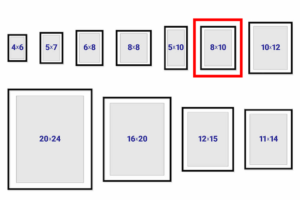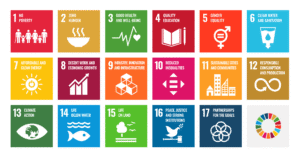
Preschool, often the first formal educational experience for children, plays a pivotal role in shaping their future academic and personal development. In this foundational stage, children embark on a journey of discovery, exploration, and learning, laying the groundwork for their future success. What exactly do kids learn in preschool?
Preschool curriculum is meticulously designed to cater to the holistic development of young learners. Through play-based activities, interactive experiences, and structured lessons, children are introduced to a diverse array of subjects and skills. From basic literacy and numeracy concepts to social-emotional learning and motor skills development, preschool offers a comprehensive learning environment tailored to the unique needs of young minds.
In the nurturing confines of the preschool classroom, children learn the fundamentals of language, mathematics, science, and the arts. They engage in imaginative play, fostering creativity and critical thinking. Through hands-on experiences, they develop fine and gross motor skills, enhancing their physical dexterity and coordination. Moreover, preschool provides a platform for social interaction, teaching children essential communication, cooperation, and problem-solving skills.
Building the Bridge to School Readiness
One of the primary objectives of preschool education is to prepare children for the transition to formal schooling. School readiness encompasses a myriad of cognitive, social, and emotional competencies that lay the groundwork for academic success. In preschool, children acquire vital skills and knowledge that equip them for this pivotal milestone.
From learning to follow instructions and routines to developing independence and resilience, preschool instills invaluable habits and attitudes conducive to learning. Children become familiar with the structure of a classroom environment, cultivating habits of attentiveness and concentration. They also learn to interact with peers and authority figures, honing their social skills and emotional intelligence.
Furthermore, preschool promotes early literacy and numeracy skills, providing children with a solid foundation for future academic pursuits. Through activities such as storytime, rhyming games, and counting exercises, children develop essential pre-reading and numeracy skills. By the time they enter kindergarten, they are better equipped to engage with more advanced academic content, setting them on a trajectory for academic success.
If you’re looking for Preschool, Apples and Bananas is a Premier Preschool in Ahmedabad.
Nurturing Language and Cognitive Development
Language acquisition and cognitive development are at the forefront of preschool education. During these formative years, children’s brains are highly receptive to linguistic input and cognitive stimulation. Preschool capitalizes on this critical period of development to foster language skills, cognitive abilities, and executive functions.
In the preschool setting, children are immersed in a language-rich environment where verbal communication is encouraged and celebrated. Through conversations, storytelling, and vocabulary-building activities, children expand their linguistic repertoire, acquiring new words and grammatical structures. Moreover, exposure to diverse languages and cultures fosters cultural awareness and appreciation.
Cognitive development in preschool encompasses a wide range of skills, including memory, attention, problem-solving, and decision-making. Through age-appropriate games, puzzles, and activities, children enhance their cognitive abilities, learning to think critically and analytically. Preschool also stimulates curiosity and imagination, encouraging children to explore and inquire about the world around them.
Fostering Early Academic Initiatives
While preschool is primarily focused on holistic development rather than formal academics, it nonetheless lays the groundwork for future academic success. Through structured activities and guided instruction, children are introduced to fundamental academic concepts in literacy, mathematics, science, and more.
In the realm of literacy, preschoolers are exposed to letters, sounds, and early reading skills through storytelling, phonics activities, and alphabet games. They develop phonemic awareness, the ability to recognize and manipulate individual sounds in words, which is essential for reading success. Additionally, writing activities, such as tracing letters and forming simple words, promote fine motor skills and handwriting readiness.
In mathematics, preschoolers engage in hands-on activities that introduce basic mathematical concepts such as counting, sorting, patterns, and spatial relationships. Through games, puzzles, and manipulatives, children develop number sense and mathematical reasoning skills, laying a solid foundation for future mathematical proficiency.
Cultivating Confidence and Beyond
Beyond academic and cognitive development, preschool plays a crucial role in nurturing children’s self-confidence, resilience, and socio-emotional well-being. In the supportive and encouraging environment of the preschool classroom, children learn to assert themselves, express their thoughts and feelings, and develop a positive self-image.
Through collaborative activities and group projects, children learn the value of teamwork, cooperation, and empathy. They gain confidence in their abilities to interact with peers, resolve conflicts, and navigate social situations. Moreover, preschool fosters a sense of belonging and community, providing children with a safe and inclusive space where they can thrive emotionally and socially.
Preschool also instills important life skills such as independence, responsibility, and problem-solving. Children learn to take initiative, make choices, and take ownership of their learning experiences. They develop resilience in the face of challenges and setbacks, learning to persevere and adapt in an ever-changing world.
In conclusion, preschool education lays the foundation for a lifetime of learning and growth. Through a holistic approach that encompasses cognitive, social, emotional, and academic development, preschool equips children with the skills, knowledge, and attitudes they need to succeed in school and beyond. By nurturing curiosity, creativity, and confidence, preschool empowers young learners to explore, discover, and reach their full potential. And in Ahmedabad, Apples and Bananas stands as a beacon of excellence in preschool education, providing a nurturing and enriching environment where young learners can thrive.







